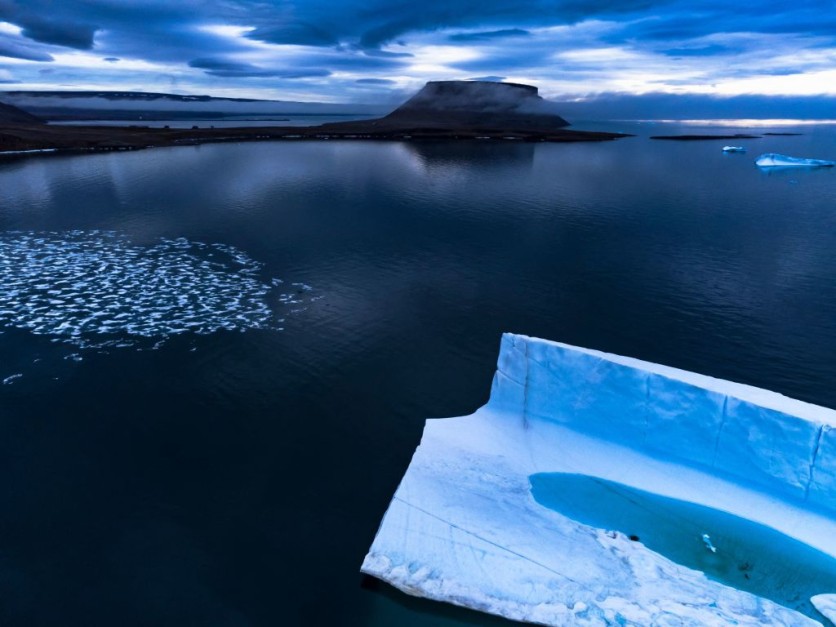An international team of scientists has raised new concerns about the changing chemistry of the ocean after discovering that the western Arctic Ocean's acidity levels are increasing three to four times faster compared to other ocean waters, according to a report by SciTechDaily.
Wei-Jun Cai of the University of Delaware is a member of the research team that discovered a significant connection between the rate of ocean acidification and the increased rate of ice melting in the area.
The survival of plants, marine life, and several biological processes across the planet's ecosystem are all at risk as a result of this hazardous combination.

Arctic Acidification Data
The new study is the first to assess Arctic acidification data spanning more than two decades, from 1994 to 2020, and was published in the journal Science.
Due to the area's growing hot summers, it is predicted that the Arctic sea ice in this region may disappear by 2050 or earlier. The ocean's chemistry will change as a result of this sea-ice retreat every summer if there isn't a stable ice cover to slow or offset the acidification.
Zhangxian Ouyang, a postdoctoral researcher at UD, participated in a recent expedition to gather data in the Chukchi Sea and Canada Basin of the Arctic Ocean for the research.
Di Qi, who collaborates with Chinese research institutions in Xiamen and Qingdao, was the publication's first author. Scientists from Seattle, Sweden, Russia, and six additional Chinese research centers also contributed to the study.
When Cai and Qi first looked at the Arctic data together during a conference in Shanghai, Cai said that both of them were perplexed.
Arctic's acidity was rising three to four times faster than other ocean waters, according to the study. The increased sea ice melt during the summer months in the Arctic was identified by Cai as the main culprit.
Read also: Canada's Arctic Meltdown: Collapsing Lost 40% Ice Mass in Two Days, Result of Arctic Amplification
Analyzing Historical Data
Historically, throughout the summer months, shallow marginal areas of the Arctic sea ice have experienced melting. That began to alter in the 1980s, although Cai noted that it fluctuated over time. The ice melt has accelerated over the last 15 years, moving deeper into the northern deep basin.
For the first time, such a long-term view was feasible when data from 1994 to 2020 were analyzed. Cai, Qi, and their colleagues discovered an astonishing increase in acidification and a close association with the speed at which ice is melting.
The findings thus far demonstrate once more the far-reaching effects of climate change, according to Cai, but additional research is needed to improve their data and better anticipate future changes.
"If all of the multiple-year ice is replaced by first-year ice, then there will be lower alkalinity and lower buffer capacity and acidification continues," Cai said in a statement.
"By 2050, we think all of the ice will be gone in the summer. Some papers predict that will happen by 2030. And if we follow the current trend for 20 more years, the summer acidification will be really, really strong."
Related Article : Arctic Climate Crisis Allowed New Maritime Routes, Shipping Emissions Accelerates Ice Melt
This article is owned by Tech Times
Written by Jace Dela Cruz
ⓒ 2025 TECHTIMES.com All rights reserved. Do not reproduce without permission.




